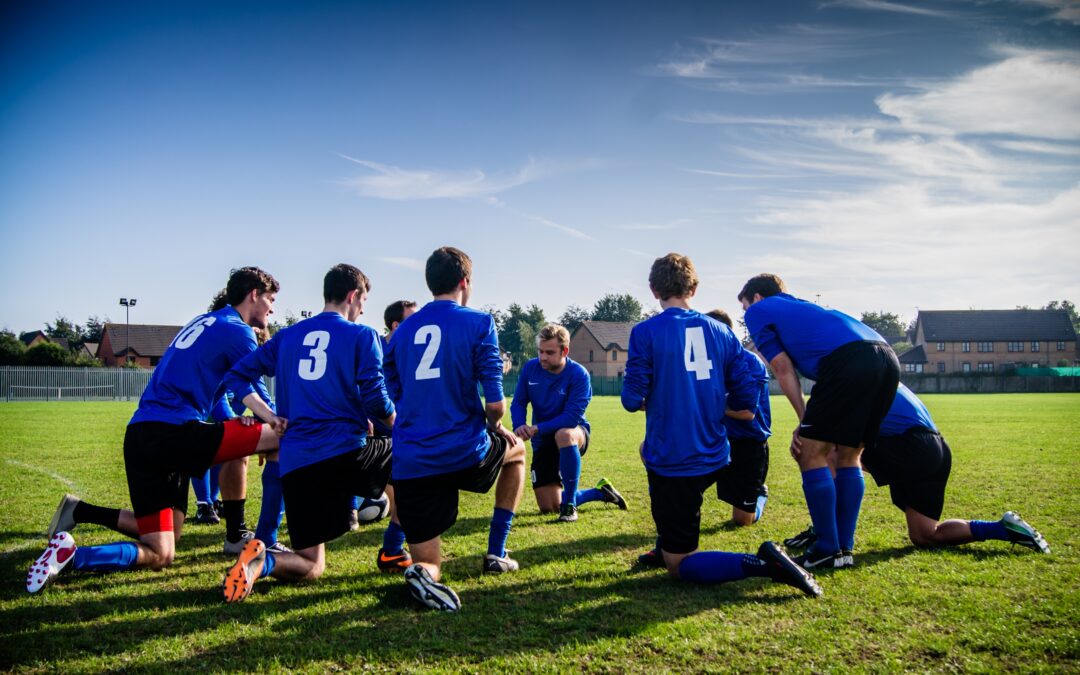Team sports such as hockey, football, rugby etc. are known for improving social development, encouraging positive environments, and teaches the importance of friendship amongst teammates. However, team sports can often create individual stress and conflict, particularly when a friendship becomes strained and unhealthy. This can manifest strongly amongst some players resulting in forms of bullying towards others. For example, one study found that the highest percentage of athletes who identified as victims of bullying and harassment were from team sports (1).
Bullying can cause a number of negative consequences including, low self-esteem, confidence drops and reduced motivation. Here we will discuss the types of bullying, potential impacts it may have and some ways to help combat bullying.
Types of bullying
There are many types of bullying which can occur, all of which are not limited to behaviours that occur during sports training and matches. These include:
Cyberbullying
- Targeted messages on social media
- Negative text messages
Social bullying
- Exclusion from group activities (e.g. passing games during practice or meet-ups away from the pitch)
- Spreading negative rumours
- Shaming others for their performance in front of others
- Ganging up on a team member because the ‘leader’ of the team does not like them
Psychological/Emotional bullying
- Verbal intimidation (threats, name-calling, teasing)
- Harassing and blaming a team member for a mistake made during the game
- Repeated criticism of a team member for their level of skill and ability
- Targeting team members who receive more praise/attention from the coach
Physical bullying
- Physical intimidation (e.g. controlling space, standing too close)
- Threats of or actual violence (e.g. hitting/pushing)
It is important to note all forms of bullying shown above can be present in team sports however, they are not mutually exclusive and often overlap. This can seem very overwhelming to the individual and many often struggle to find a way to deal with each varied threat.
Impact on confidence
There are many detrimental effects of bullying, but perhaps most prominent is a lack of or reduced self-esteem (confidence). This can impact you or your child massively, both during training/matches or outside of the sport (e.g. at school). For example, you may feel like you aren’t good enough for the team, or that you shouldn’t even bother turning up to training anymore. At school, you may feel your confidence struggling in things like exams or schoolwork. Despite this, there are multiple different methods of coping with bullying, and the subsequent lack of self-esteem/confidence that can help.
How to deal with bullying and low confidence
Tell someone
As simple as it sounds, telling someone what is going on is a super important step to combating bullying. One person you could talk to is your coach, or you could mention it to your parents. You could even mention it to a friend in practice or school and let them know who is targeting you. By telling someone else what is going on, you are including someone else in the situation and doubling the likelihood of someone being able to intervene.
Talk to your coach
A lack of confidence can make you feel like the whole world is against you and there’s nothing you can do. Perhaps try asking your coach what you did well during a match or training and write it down. By having someone tell you the positive things you’ve done you can work to counter that which the bullying is falsely telling you.
Disengaging with the bullies
It may be one of the hardest things to do when you are being victimised however, it has been shown that by ignoring and not engaging with bullies, it often discourages them from further negative behaviours towards you. If you can remove the power the bully receives from getting a reaction from you, the likelihood drops that they will keep displaying negative comments and behaviours.
Set goals
By setting goals and subsequently achieving them, you are actively boosting your confidence and self-esteem! These goals don’t have to be complex and difficult to reach, you could even set one as simple as ‘make two good passes next time I’m in a match’. You might want to write all your goals down and when you achieve them (as I have no doubt you will) you can have the extreme satisfaction of checking them off one by one. This can be very empowering and boost your confidence levels dramatically. In turn, you may find the negative things the bully is saying no longer impact you as much.
It is important to know that no matter what, you are never in this alone. There are many people around you that can help, from confronting the bullies to supporting you when you play. No matter what you do, just remember doing something is always better than doing nothing.
—
If you are suffering from any form of bullying mentioned above and are looking for more ways to get help, please find some helpful sources below:
- Vveinhardt, J., & Fominiene, V. B. (2020). Prevalence of bullying and harassment in youth sport: The case of different types of sport and participant role. Journal of human sport and exercise, 1-21

